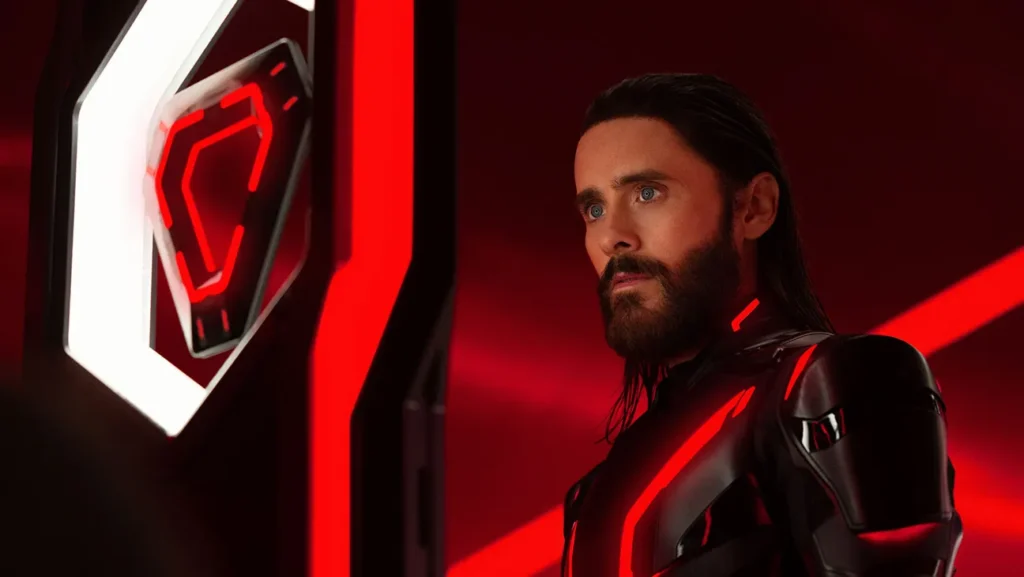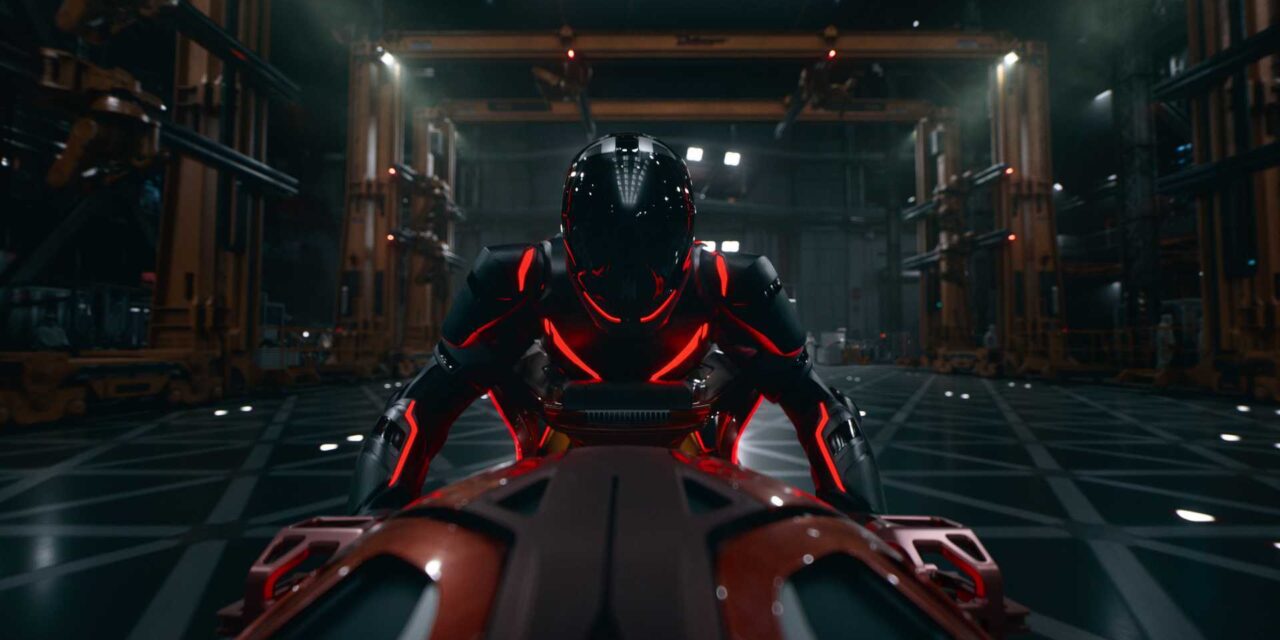
The return to The Grid with the release of Tron: Ares was intended to give October a significant boost at the box office, but various factors caused the film to slow down, resulting in a domestic opening of $33.2 million and a global debut of $60.2 million. This kind of start wouldn’t be too concerning had the film not carried a robust $180 million budget before marketing costs were factored in. With the movie likely not being able to match its budget stateside by the end of its run and foreign grosses also being in question, Disney has to be wondering if the Tron franchise is doomed for future installments.
When the first movie was released in 1982, it didn’t exactly set the box office on fire. Tron grossed $33 million domestically by the end of its run in 1982 and finished with a global take of $50 million. All of this was done on a $17 million budget, and it had the bragging rights of being Disney’s highest-grossing live-action film for five years. Tron eventually developed a devoted cult following, which resulted in a media franchise that included comic books and, finally, a sequel in 2010 called Tron: Legacy.
Following a similar trajectory as its predecessor, Tron: Legacy was a moderate commercial success, given its $170 million budget, grossing $172.1 million domestically and $409.9 million worldwide. In the years following its theatrical release, Tron: Legacy also developed a cult following, which is likely why Disney began plans for a sequel, ultimately resulting in Tron: Ares. It’s clear that the Tron franchise does have a devoted following of fans, but no studio likes to see diminishing returns, and Tron: Ares looks to be an example of this.
Tron: Ares was projected, at one point, to open between $40-45 million domestically and $80-90 million worldwide. That would’ve kept the movie pretty much in line with the opening of Tron: Legacy domestically ($43.6 million) and ahead of its global debut of $66.6 million. The key difference is that Tron: Legacy opened during the holiday season of 2010 and was able to carry some legs that led to its $409.9 million global haul when it was all said and done. Tron: Ares doesn’t have the benefit of holiday cheer at the box office, and even though it still has China to open in, it’s very questionable if the movie will come close to Tron: Legacy’s final box office take.

Disney likely wanted to see growth from the franchise in terms of its fanbase, but it’s clear that, while devoted, the Tron IP hasn’t expanded much over its 43-year life span. This is particularly true when it comes to the younger demo, with Deadline reporting that just 30 percent of the opening audience was under the age of 25. Younger audiences do tend to drive box office figures, and this is especially true for male-driven sci-fi franchises. If the studio can’t reach them, a movie like Tron: Ares is going to have an uphill battle that even its most devoted following can’t completely save.
It should be noted that Disney wasn’t overly enthusiastic about rushing into a sequel after Tron: Legacy’s $409.9 million worldwide gross. Given the film’s huge budget, the studio was hesitant about moving forward, which explains the sequel being in development for over a decade. During that time, Jared Leto came into the mix about a follow-up, which had a different script at that particular time that didn’t completely excite the actor. What intrigued Leto was expanding on the concept of Ares, a program that became self-aware and grew curious about the outside world beyond The Grid. Eventually, Jesse Wigutow’s script settled into the A.I. concept being unleashed onto the real world, and Disney was down to give the sequel a shot.
Interestingly enough, some online are pointing to Leto as the box office problem. There’s no doubt that he has proven himself to be a good actor with an Academy Award under his belt, but his acting process is no secret, and that has led to a lot of moviegoers finding him especially pretentious. He also doesn’t have much box office clout as a name above the title actor. Even though Leto carried the much-maligned Morbius to a bigger domestic opening ($39 million), that film fell apart almost instantly with a final domestic gross of $73.8 million and just $167.4 million on a $75 million budget.
Sony Pictures kept the pricetag low, but with marketing costs and COVID-19 delays affecting its release, more money was certainly spent and left on the table. All of this didn’t fall on Leto, but an actor with more box office goodwill may have been able to push Morbius to better fortunes. At the end of the day, Leto is more of a niche supporting actor and hasn’t completely proven himself as a leading man.

Leto has found himself in this position before as part of a long-dormant sci-fi franchise attempting to make a triumphant return. In 2017, Leto took on the role of Niander Wallace alongside Ryan Gosling and Harrison Ford in Blade Runner 2049. The movie, while well-received by critics due to the execution of Denis Villeneuve, found itself with its own box office problem. The film had a similar budget to Tron: Ares (reportedly between $150-185 million), and it opened almost in line with the third Tron entry, with $31.5 million. This was deemed a disappointment at the time, and when the film finished with just $92.1 million domestically and $277.9 million worldwide,
it was considered in some circles to be a costly misfire, despite reviews being solid. The original Blade Runner, also released in 1982, wasn’t a runaway success, much like Tron (coming in lower at $32.9 million domestic), but it developed a strong cult following, also like Tron. This was enough to make Blade Runner 2049 happen with a hot director like Villeneuve at the helm, but its final take wasn’t enough to generate a follow-up. Given the similar paths the two films are on at the moment, Tron: Ares could finish around the domestic and global gross of 2049, and that just doesn’t seem like enough for Disney to be fully invested in another film.
Reviews have never been much of a worry when it comes to the Tron franchise because all three have received more mixed notices from critics rather than glowing raves. The technical aspects have always been praised, but the issues have come down to story, and that didn’t improve with Tron: Ares. Even though A.I. and the scary nature of its potential growth have been dominating the narrative, nothing about the story in Ares felt especially groundbreaking. Much of what it spouts off has been covered before, particularly in Terminator, so nothing is exciting or fresh from a storytelling standpoint about the film. However, and this is significant, it’s still a technical wonder of sight and sound. Tron: Ares may have a story that lacks, but it’s always entertaining and shows growth in terms of its technical aspects, something that has been its main selling point since the beginning.
Working in its favor is that the fanbase appears pleased with the film (the audience score on Rotten Tomatoes is at a comfortable 87 percent) while the CinemaScore of “B+” is decent enough for a sci-fi film of this sort. Exits like this could propel the film beyond its theatrical run when it is released on digital and physical media. Streaming will also be a factor, and this is the kind of movie that could shine on Disney+, especially with fans wanting to watch the trilogy in full and in one setting.
There is money to be made from all of these avenues, but it’s just a matter of it all being enough for Disney to greenlight a sequel. Tron: Ares has a mid-credits scene that certainly sets up something exciting for fans, but will they have to wait over a decade to see it? It still remains to be seen if a return to The Grid, any time soon, will be a financial risk worth taking.
Tron: Ares is now playing in theaters nationwide.
For more on Movie News, make sure to check back to That Hashtag Show.





![Blue Beetle – DC Is Fun Again [Review]](http://18.211.146.234/wp-content/uploads/2023/08/363523748_1357602515102701_5659647367322026111_n-440x264.jpg)